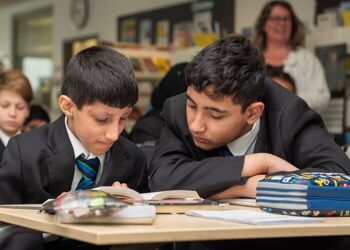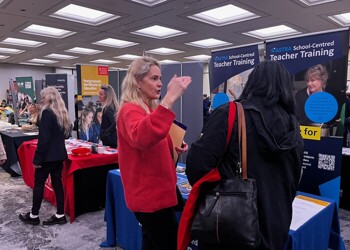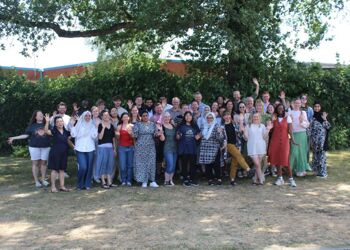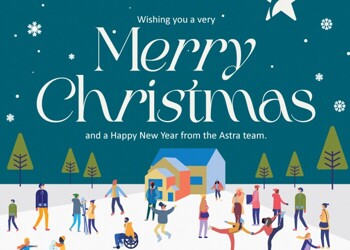 December 19th 2025
December 19th 2025Secondary
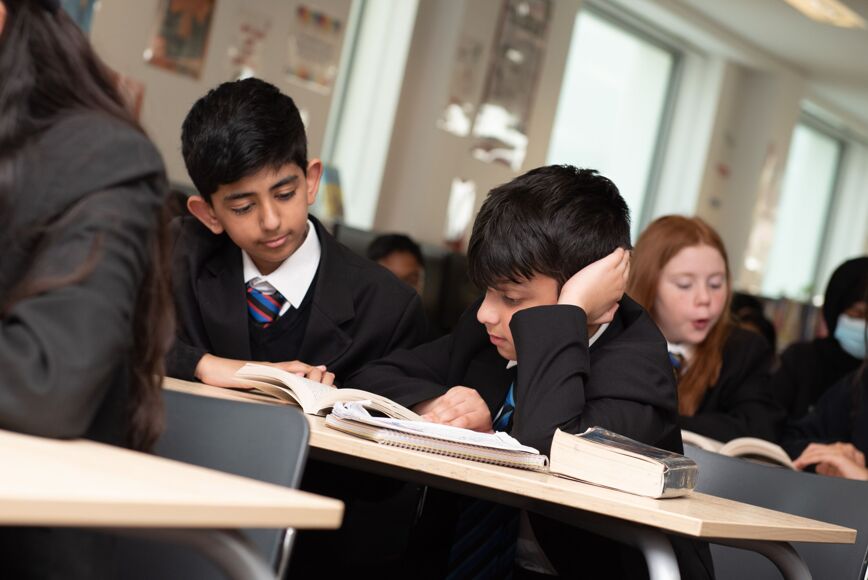
Astra’s training is designed to equip the next generation of teachers with the skills and knowledge to enable all young people to flourish. With a commitment to inclusive professionalism, you will be qualified to teach across the age and ability range, from Key Stage 3 through to A level.
Astra offers a full range of secondary subject specialisms including:
- English
- Maths
- Modern Foreign Languages (Spanish, French and German)
- Biology
- Chemistry
- Physics
- History
- Geography
- Religious Education
- Drama
- Dance
- PE
- Art and Design
- Design Technology
- Computer Science
Our aim is to develop trainees as reflective practitioners who have strong practical classroom skills and excellent subject knowledge. Our curriculum enables trainees to learn how to use research evidence to inform their classroom practice, gain a detailed knowledge of teaching their subject and understand wider issues in secondary education.
Astra Partnership Trainees gain the essential skills of all effective teachers, from learning to plan and teach lessons which are creative and engaging to supporting pupils’ oracy, literacy and numeracy. You’ll learn how to assess and use this information to improve pupil learning, and you’ll gain skills in classroom and behaviour management. Trainees also learn how to adapt their teaching to meet the different learning needs of pupils.
Integrated Training
Professional Studies and in-school placements are woven together to create a carefully sequenced curriculum. Your school-based mentor, always a practising teacher, will help you apply what you have learnt in Professional Studies and critically reflect on your own teaching, helping you to deconstruct, rehearse and practise the elements of effective teaching.
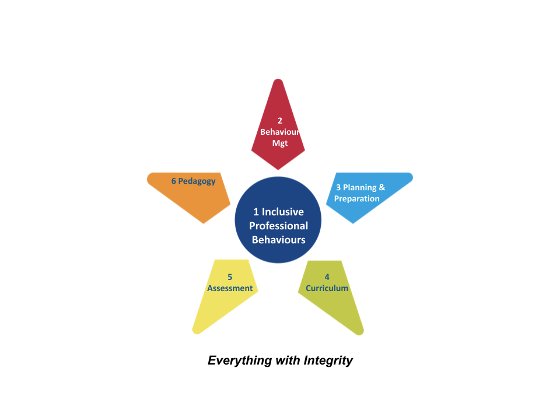 Our core Professional Studies programme, followed by all trainees, focuses on six key modules, known together as the Astra Star, which covers:
Our core Professional Studies programme, followed by all trainees, focuses on six key modules, known together as the Astra Star, which covers:
- Inclusive professionalism
- Behaviour management and climate for learning
- Pedagogy and adaptive teaching
- Planning and preparation
- Curriculum
- Assessment
Underpinning this framework lies the Core Content Framework, in effect a National Curriculum for Teaching and supported by a research evidence base. Our training goes significantly beyond this, enabling trainees to learn to use research evidence critically in their teaching.
A key component of the Professional Studies programme, all secondary Astra Partnership Trainees follow a course in Subject Studies, which is focused on developing trainees' specialist knowledge of their curriculum area. This doveltails with the main Professional Studies course and considers the elements of the Astra Star as they relate to specialist subjects.
For each secondary specialism, all courses consider:
- The aims of the subject winthin the secondary school
- Teaching across the age and ability range from Key Stage 3 to GCSE and A level
- Planning and preparation
- Developing core subject knowledge for teaching
- Assessment
- Behaviour management
Part-time courses
Astra Partnership Trainees on the part time route normally complete the course in two years. Each year, we have a number of secondary part time trainees, especially (but not only) in courses without bursary funding. The part time option can make training in these subjects more financially accessible.
Year 1
Part time trainees spend three days per week on the course. Two days (either Monday and Tuesday or Thursday and Friday) are normally spent in a partner school. Wednesdays are almost always spent in training, along with trainees on the full time route.
Year 2
Part time trainees normally spend two days per week in school (e.g Monday and Tuesday). The PGCE element of the course is also completed in the second year. PGCE sessions are spread across the year, usually on a Wednesday, and involve approximately two whole days and five half days.
Bespoke Patterns
Subject to a suitable school placement, it is sometimes possible to complete the course in less than two years by 'concertinaing'. A trainee who completed three days per week in school in the second year would normally complete the course at the end of February, enabling quicker qualification as a teacher.
Two contrasting placements
All trainees on the part time route complete two contrasting placements, just like those on the full time route.
Funding
Where a course is eligible for a bursary and/or student loan, this is also available to part time trainees.

